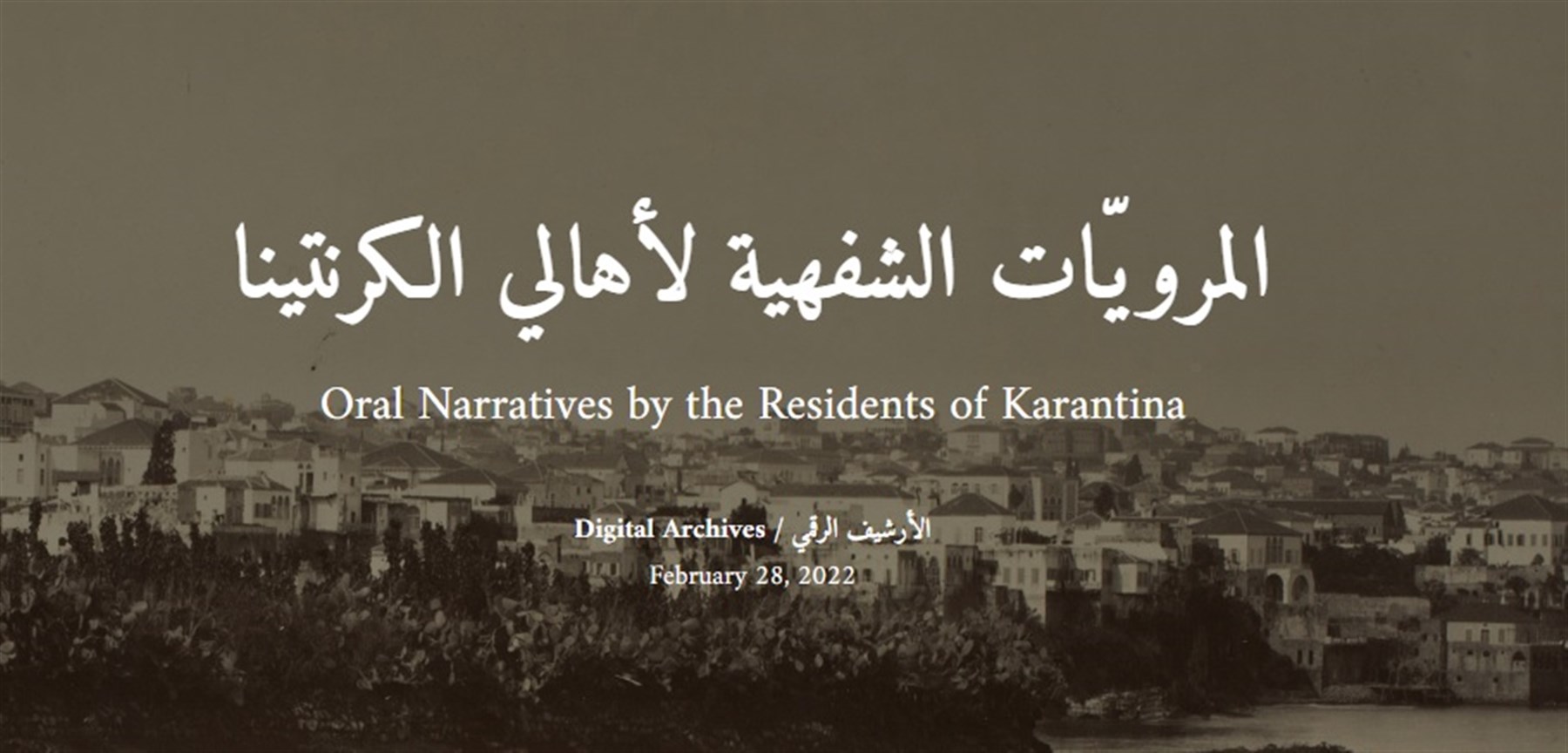Oral Narratives by the Residents of Karantina

Beirut Urban Lab launches the "Oral Narratives by the Residents of Karantina" platform which focuses on “recovery as unarchiving” in the neighborhood of Karantina.
×
“Oral Narratives by the Residents of Karantina”, led by Howayda Al-Harithy at the Beirut Urban Lab, is one of the activities of the Beirut Investigative Lab, which is part of a larger collaborative project “Imagining Futures Through Un/Archived Pasts”. The Lab aims to investigate two strands at the intersection of city and archives: ‘city as archives’ and ‘archiving the city’, leading to a hypothesis on ‘unarchiving the city.’ The oral narratives project focuses on the second strand, ‘archiving the city’, using Karantina as a case study. It challenges authoritarian narratives by exploring alternative and inclusive egalitarian methods of archiving its oral history and socio-spatial practices. As it does so, it contributes to “recovery as unarchiving” which investigates how unarchiving during post-disaster recovery produces multiple future imaginaries.
Karantina is a site of multiple traumas and remains one of the most marginalized and vulnerable neighborhoods in Beirut that houses low-income groups. It is confined by natural and physical infrastructural edges that separate it from the city. Karantina’s built environment is an overlap of historical evolution, spatial practices, and built fabric, further damaged by the port’s blast of August 4, 2020. Sitting at the eastern edge of Beirut, Karantina has the least archived material with respect to other parts of Beirut. Today, Karantina is stigmatized, silenced, and excluded from participating in the narrative or future of the city.
Karantina is a site of multiple traumas and remains one of the most marginalized and vulnerable neighborhoods in Beirut that houses low-income groups. It is confined by natural and physical infrastructural edges that separate it from the city. Karantina’s built environment is an overlap of historical evolution, spatial practices, and built fabric, further damaged by the port’s blast of August 4, 2020. Sitting at the eastern edge of Beirut, Karantina has the least archived material with respect to other parts of Beirut. Today, Karantina is stigmatized, silenced, and excluded from participating in the narrative or future of the city.
×
The outcome is an online open-source platform for Karantina. The platform offers georeferenced oral narratives collected by the research team to facilitate for the community members and stakeholders across generations, gender, and class to upload archival material such as photos, maps, and oral voice bites. Through trained Citizen Scientists (CS) and networks, the BUL team conducted around 100 interviews with the locals in Karantina and invited them to participate in sharing material on the open-source platform.
Using dissensus methodologies, this open-source platform articulates modes of egalitarian archival practices and becomes an entry point to create future imaginaries and participatory approaches to recovery as opposed to top-down state-driven masterplans. This act, once multiplied by the collective, will be a step towards negotiating the future of a neighborhood and empowers recovery as unarchiving. This pilot can be a proof of concept and a repository for future recovery plans and egalitarian participatory and community archives.
Using dissensus methodologies, this open-source platform articulates modes of egalitarian archival practices and becomes an entry point to create future imaginaries and participatory approaches to recovery as opposed to top-down state-driven masterplans. This act, once multiplied by the collective, will be a step towards negotiating the future of a neighborhood and empowers recovery as unarchiving. This pilot can be a proof of concept and a repository for future recovery plans and egalitarian participatory and community archives.